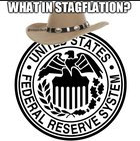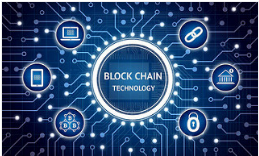Blockchain-- "crypto-medieval hellhole”
The shipping industry is drowning in paperwork worldwide. But soon, reports Bloomberg, all that paper will be replaced by the blockchain. Yes, the technology that birthed Bitcoin will soon “be the biggest innovation in the [shipping] industry since the containerization,” says Rahul Kapoor, an analyst at Bloomberg Intelligence in Singapore. “It basically brings more transparency and efficiency. The container shipping lines are coming out of their shells and playing catch-up in technology.”
Blockchain will generate $1 billion in trade. Kai Stinchcombe has his doubts. In a piece for Medium, he writes,
Blockchain is not only crappy technology but a bad vision for the future. Its failure to achieve adoption to date is because systems built on trust, norms, and institutions inherently function better than the type of no-need-for-trusted-parties systems blockchain envisions. That’s permanent: no matter how much blockchain improves it is still headed in the wrong direction.
Stinchcombe asserts,
there is no single person in existence who had a problem they wanted to solve, discovered that an available blockchain solution was the best way to solve it, and therefore became a blockchain enthusiast.
Retailers are not rushing to accept cryptocurrency and notably, Ripple, doesn’t use blockchain in it’s product. When Ripple wants to move money it does not do it using Ripple.
People go on and on about how groundbreaking blockchain will be. It’s going to replace lawyers, title companies and who-knows-what-all. However, as Stinchcombe explains, that’s because people don’t know what blockchain is. They are just parroting what other people have said. I’ve done it myself. He explains,
A blockchain isn’t an ethereal thing out there in the universe that you can “put” things into, it’s a specific data structure: a linear transaction log, typically replicated by computers whose owners (called miners) are rewarded for logging new transactions.
Blockchain is cool because you can’t change what’s on it and there is an incentive to work on the same chain as everyone else. No cops or government required, math is the enforcer. As Stinchcombe writes, “It’s a powerful idea.”
But does it work in practice? Is blockchain a “futuristic integrity wand”? While it’s hard to tamper with data on the blockchain, the idea that blockchain is a good way to create data that has integrity is false.
The co-founder of True Link Financial writes, “You actually see it over and over again. Blockchain systems are supposed to be more trustworthy, but in fact they are the least trustworthy systems in the world.”
Bitcoin exchanges are hacked all the time and who's to say shipping company data will be 100% accurate. The Blockchain does not and will not ensure accurate data.
The market has created various ways to enforce honest transactions, generally with rating systems with some sort of middleman resting on the the belief that sellers and buyers value their reputations.
Blockchain, Stinchcombe offers in his article’s money shot, is “Somalia on purpose. That’s the vision. Nobody wants it!”
For instance,
93% of bitcoins are mined by managed consortiums, yet none of the consortiums use smart contracts to manage payouts. Instead, they promise things like a “long history of stable and accurate payouts.” Sounds like a trustworthy middleman!
Trust is very valuable, says Stinchcombe, who last week spoke at a Grant’s Interest Rate Observer conference. “A lawless and mistrustful world where self-interest is the only principle and paranoia is the only source of safety is a not a paradise but a crypto-medieval hellhole.”
Stinchcombe might tell shipping companies not to get rid of all their paper and paper pushers just yet.






